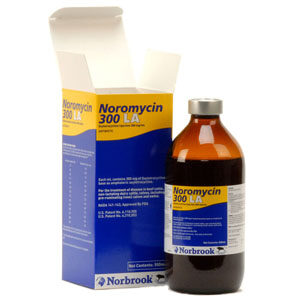Dexaone Injection
Contraindications:
Should not be used in animals with systemic fungal infections.
Pregnant animals: It may induce premature labor or cause fetal development issues.
Caution should be used in animals with diabetes, kidney disease, or heart disease, as corticosteroids can worsen these conditions. Dexaone Injection
Drug Interactions:
NSAIDs: Increases the risk of gastrointestinal ulcers when used concurrently.
Vaccines: Can reduce the effectiveness of vaccines by suppressing the immune system.
Precautions:
Avoid long-term use without proper veterinary supervision.
Always taper the dose gradually to prevent adrenal insufficiency.
Monitor for signs of infection, particularly during long-term therapy.
Regular follow-ups with a veterinarian are important to monitor side effects.
Storage:
Store Dexaone Injection in a cool, dry place, away from direct sunlight. Do not freeze. Dexaone Injection
Conclusion:
Dexaone Injection is a valuable tool in veterinary medicine for managing inflammation, allergic reactions, and autoimmune conditions. However, it should be used carefully and under veterinary guidance to minimize potential side effects and ensure the best outcomes for the animal. Proper dosing, monitoring, and awareness of potential risks are essential to its safe use.
Dexaone Injection is a veterinary corticosteroid medication that contains dexamethasone, a potent synthetic glucocorticoid. It is primarily used to treat inflammation, allergies, and a variety of immune-mediated conditions in animals such as horses, cattle, dogs, and cats.
Key Uses of Dexaone Injection:
Anti-Inflammatory:
Effective for reducing inflammation caused by musculoskeletal injuries, joint conditions, or arthritis.
Allergy Treatment:
Helps manage allergic reactions, including skin allergies, insect bites, and food allergies.
Immune Suppression:
Used in the treatment of autoimmune diseases where the immune system attacks the body’s tissues.
Respiratory Conditions:
Helpful in managing respiratory issues such as asthma, chronic obstructive pulmonary disease (COPD), and allergic airway inflammation in horses.
Shock and Trauma:
Used in emergency situations for treating animals in shock due to injury or allergic reactions, helping stabilize them. Dexaone Injection
Hormone Replacement:
Can be used in animals with adrenal insufficiency, where the body is not producing enough cortisol.
Dosage and Administration:
The dosage of Dexaone depends on the species, size of the animal, and the condition being treated. It is usually administered by intramuscular (IM), intravenous (IV), or subcutaneous (SC) injection.
Horses and Cattle:
For inflammatory conditions, the dosage can vary from 2 to 10 mg depending on severity.
Dogs and Cats:
The dosage may range from 0.1 to 0.3 mg/kg of body weight for anti-inflammatory purposes.
Always follow the veterinarian’s specific dosage instructions Dexaone Injection
Mechanism of Action:
Dexaone works by mimicking the action of cortisol, a natural hormone produced by the adrenal glands. It helps regulate inflammation, immune responses, and metabolism. By suppressing the immune system, dexamethasone reduces the production of substances like prostaglandins and cytokines, which are responsible for inflammation and pain.
Benefits of Dexaone:
Rapid Action: Dexaone provides quick relief from inflammation and allergic reactions.
Multi-Purpose Use: It can be used in various animals to treat a wide range of conditions, from respiratory problems to skin allergies.
Side Effects:
While Dexaone is effective, it also carries risks, particularly with long-term use or high doses. Some common side effects include:
Increased Thirst and Urination (polyuria/polydipsia).
Increased Appetite and potential weight gain. Dexaone Injection
Suppressed Immune Function, leading to increased susceptibility to infections.
Gastrointestinal Ulcers: Corticosteroids like dexamethasone can increase the risk of stomach ulcers, especially when combined with NSAIDs. Dexaone Injection
Laminitis in Horses: Prolonged use may increase the risk of laminitis, a serious hoof condition.
Adrenal Suppression: Long-term use can lead to the suppression of natural cortisol production, making it necessary to taper off the drug rather than stopping abruptly.
Delayed Wound Healing: The drug may slow down recovery from injuries or surgeries.




Reviews
There are no reviews yet.